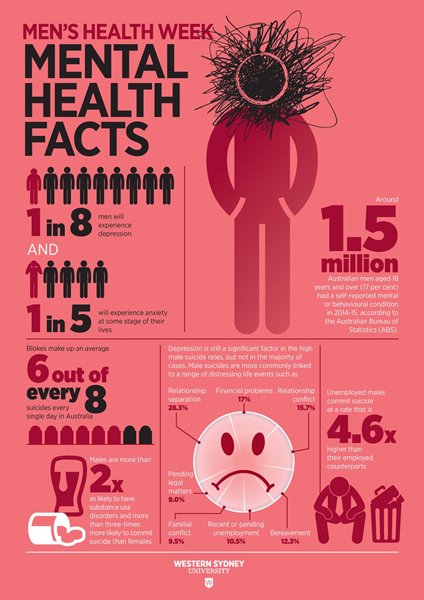
Men's Health Week 2020
15th June - 21st June
I would like to speak on one aspect of men's health that I find very important - Mental Health. Unfortunately, I am too familiar with the worst outcome of mental health; suicide. So, I am writing this blog to be another voice to raise awareness of this real-time issue.
You always hear about suicide and mental health but you never think it will actually happen to you, that’s what I thought, until the day I received the phone call about my Dad who took his own life a little over a year ago. It was so unexpected, I wish we knew what we could have done to have made a difference to his life. We could not comprehend how or why he would do it. There were no signs of him being depressed... he just got back from Thailand, I was getting married in a couple of weeks while being pregnant at the same time, his other daughter was engaged to be married. We could not have imagined this with so much happening and to look forward to.
That's the reality of men's mental health. They don't want to speak up, they don't show any signs as they like to keep things bottled up, but they really need to know, it's ok not to be ok.
In Australia, men are three times more likely to die by suicide than women.
In 2018, 76 per cent of suicides occurred in males (2,320) and 24 per cent occurred in females (726).
Evidence indicates men are far less likely to seek help for mental health conditions than women.
The 2007 National Survey of Mental Health and Wellbeing study found that in the previous year, only 27.5% of males with a mental disorder and recent symptoms had accessed services for their mental health problems compared with 40.7% of females.
It is best to use these 'health weeks' to learn and accept mental health but it is vital to always be checking up on the men and boys in our lives. For some reason, they don't like to talk as much as us women.
When asking someone if they are OK, be relaxed and friendly. Try to phrase the question openly, like "how are you going?" or "what's been happening?" to help them open up. If they don't want to talk, it's fine to let them know you're concerned about their recent behaviour and that you care about them.
And finally, don't forget to get checked regularly at the GP for common health issues found in men. It's not embarrassing; it's lifesaving.
Men's Health Week
Men's Health Week https://www.careopinion.org.au/resources/blog-resources/1-images/755f8aad72b049c7890ee7d8e6e51e7c.jpg Care Opinion Australia +617 3354 4525 https://www.careopinion.org.au /content/au/logos/co-header-logo-2020-default.pngChange from Care Opinion Australia
Posted by Natasha Kingston, Administration & Support Assistant, Care Opinion, on
About: Australia
Thanks for your feedback.

